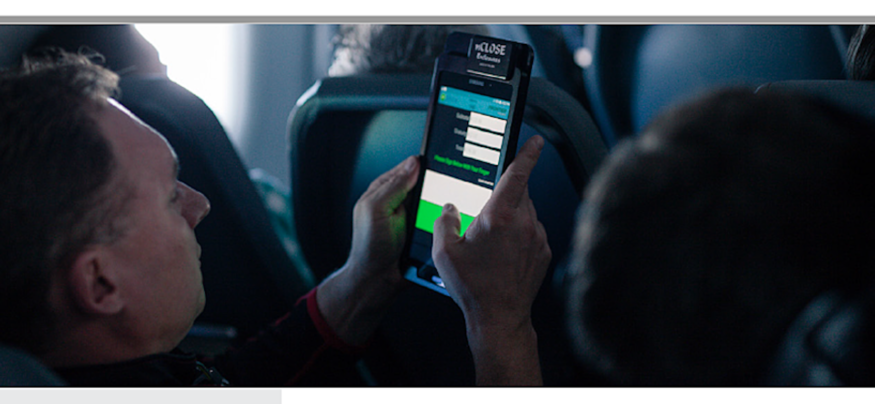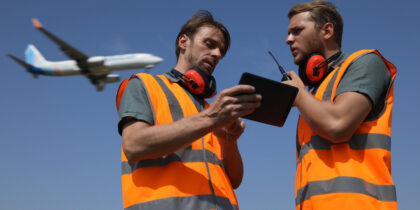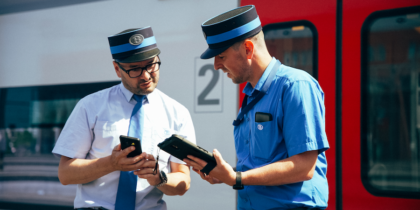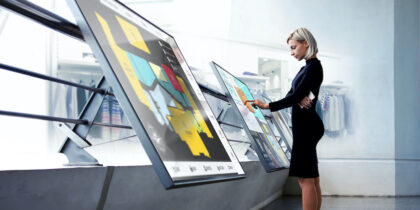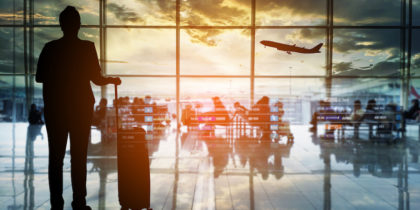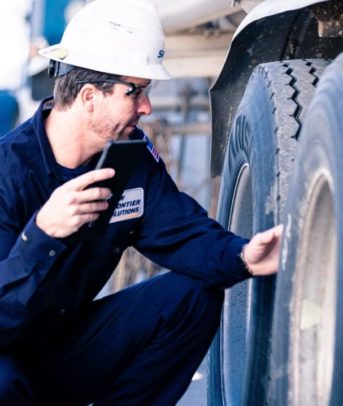Many restaurants and small businesses already rely on smartphones or tablets to ring up customer transactions. Even the Girl Scouts now use mobile apps to sell cookies to passersby without cash. But this solution also offers unique opportunities for the aviation industry, which has long relied on vendors with proprietary devices to process in-flight purchases. Yet for many airlines, particularly smaller carriers with unique needs, these older point-of-sale (POS) systems aren’t always convenient for passengers or staff.
This was the case for Frontier Airlines. As an ultra-low-cost carrier, Frontier has a unique business model. Instead of making a profit from ticket sales, as most airlines do, it offers fares as low as $15 and brings in revenue by charging for checked luggage, carry-on baggage, refreshments and other amenities.
Due to the high volume of in-flight purchases, customers experienced numerous, lengthy and sometimes unsuccessful credit card transactions using the airline’s previous point-of-sale system. And because the proprietary devices didn’t have internet access, transactions couldn’t be processed for days or even weeks, when it was too late for flight attendants to request alternative payment methods.
To address these issues, Frontier worked with Aspex POS to build a flexible, custom mobile app. To run this and other applications, Frontier purchased 8-inch Samsung Galaxy tablets for nearly 1,300 flight attendants.
The results? Higher profits and a happier staff.
Four Benefits of Tablet-Based Airline Transactions
In December 2015, Frontier became the first U.S.-based airline to adopt a tablet-based point-of-sale solution for its entire fleet of planes. Within a month of deployment, the airline began noticing key benefits, such as:
1. Increased revenue: With the old system, bundling or upselling items required flight attendants to go through an arduous checkout process. And there was no way for customers to keep an open tab, which would encourage them to spend more. The new app makes bundling a breeze, and passengers are now able to run tabs throughout their flights. As a result, revenue per passenger has significantly increased from their pre-December rollout.
Not only does the new solution make it easier for passengers to pay; it also helps Frontier better meet customer demands. “To carry a new product, we can send a push through our MDM platform and update the menu across all tablets,” says Andrew Brandess, manager of special projects at Frontier. “With our old devices, we had to wait for all the devices to come into a catering kitchen and upload the new menu.”
2. Instant revenue recognition: Frontier also needed a quicker way to recognize revenue. Because the old system used proprietary devices without data plans, the airline couldn’t process transactions until those devices went back to either the Denver or Cleveland catering station for data uploading. “If an aircraft was out of area for a while, it could take two to four weeks to process transactions, which is unacceptable, both for customers and for us,” explains Brandess. “If there was a bad credit card transaction, which happened with about 1 percent of purchases, we wouldn’t know until it was too late.”
Now with the 4G data plan, flight attendants upload data when planes return to the gate. All transactions post as soon as flight attendants upload them, and staff can identify and resolve bad credit card transactions while passengers are still on the plane.
3. Improved employee morale: Each flight attendant is assigned their own tablet, which they use to process transactions and access other company apps and information while in the air. And during off hours, they can take the tablets home for personal use. “We want flight attendants to make these as personal as possible,” explains Brandess. “At home, they can jump on Wi-Fi and surf the web or use company-approved consumer applications … By making these personal tablets, we hope flight attendants will take good care of them and get very familiar with using them.”
Because the Samsung Galaxy tablets run the same Android OS as the mobile devices that flight attendants are already familiar with, Brandess says getting staff up to speed required only a 30-minute training session. In the future, Frontier plans to add a digital version of the 150-page HR manuals all flight attendants are required by the FAA to carry, which will lighten the carrying load for both staff and aircraft.
4. Reliability: In the past, due to technical issues such as dead batteries, point-of-sale devices weren’t operational on between 5 to 10 percent of flights. However, Brandess notes that “with the personal tablets, reliability is substantially higher. Flight attendants charge them at home and are required to carry external battery charging units. This means we’re covering more flights.”
To learn more about how Frontier Airlines has boosted in-flight purchases using tablets, read the case study here.
